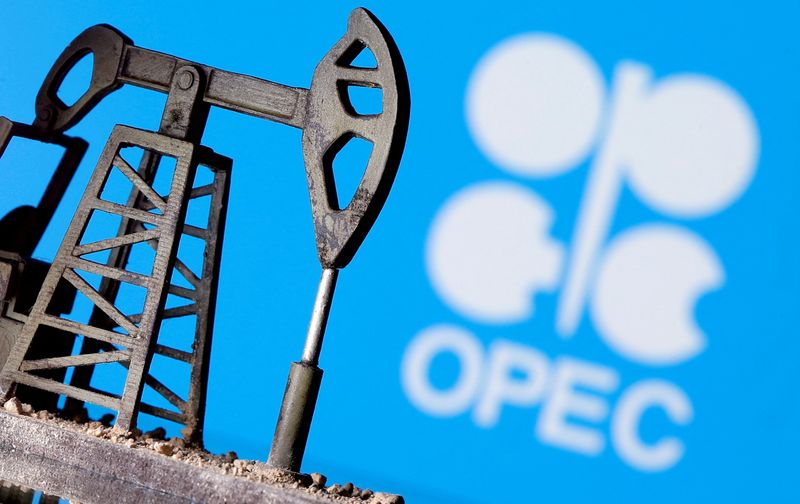By Alex Lawler
LONDON (Reuters) - The increase in OPEC's oil output in February exceeded the rise planned under a deal with allies for the first time since September, a Reuters survey found, as higher Saudi Arabian and Iraqi supply combined with fewer outages in smaller producers.
The Organization of the Petroleum Exporting Countries (OPEC) pumped 28.39 million barrels per day (bpd) in February, the survey found, up 420,000 bpd from the previous month and above the 254,000 bpd increase called for under the supply deal.
OPEC and its allies, known as OPEC+, are gradually relaxing 2020 output cuts as demand recovers from the pandemic. OPEC+ meets on Wednesday and is expected to confirm previously agreed plans despite the surge in oil prices to a seven-year high above $105 a barrel after Russia's invasion of Ukraine.
"It looks like sticking to the plan," an OPEC+ delegate said of Wednesday's meeting, adding that Russia's action in Ukraine had not so far affected the functioning of OPEC+.
Saudi Arabia's cabinet reaffirmed on Tuesday its commitment to the OPEC+ agreement.
The deal calls for a 400,000 bpd increase in February from all OPEC+ members, of which 254,000 bpd is shared by the 10 OPEC producers the agreement covers. Output undershot the pledged hikes from October to January, according to Reuters surveys.
While the 10 OPEC members raised output by more than this in February, they are still pumping less than called for under the deal. OPEC compliance with pledged cuts was 136%, the survey found, versus 132% in January.
SAUDI, IRAQ BOOST
The biggest rise in February of 90,000 bpd came from Saudi Arabia, OPEC's top producer, the survey found.
No. 2 OPEC producer Iraq managed to boost exports, despite some field shutdowns. The United Arab Emirates and Kuwait followed through on their higher quotas, and Nigerian output edged higher after recovering from outages.
Output also rose in each of the three producers exempt from making output cuts under the OPEC+ deal, the survey found.
Iran has been shipping more oil to China in recent months and pumped an extra 60,000 bpd in February. The rise comes amid talks between Tehran and world powers to revive a 2015 nuclear deal.
Libya boosted output although bad weather still hampered shipments, the survey found, while Venezuelan production rose.

Production fell or did not increase in Algeria, Congo, Equatorial Guinea and Gabon, the survey found, in many cases owing to a lack of capacity to produce more.
The Reuters survey aims to track supply to the market. It is based on shipping data provided by external sources, Refinitiv Eikon flows data, information from tanker trackers such as Petro-Logistics, as well as information provided by sources at oil companies, OPEC and consultants.